




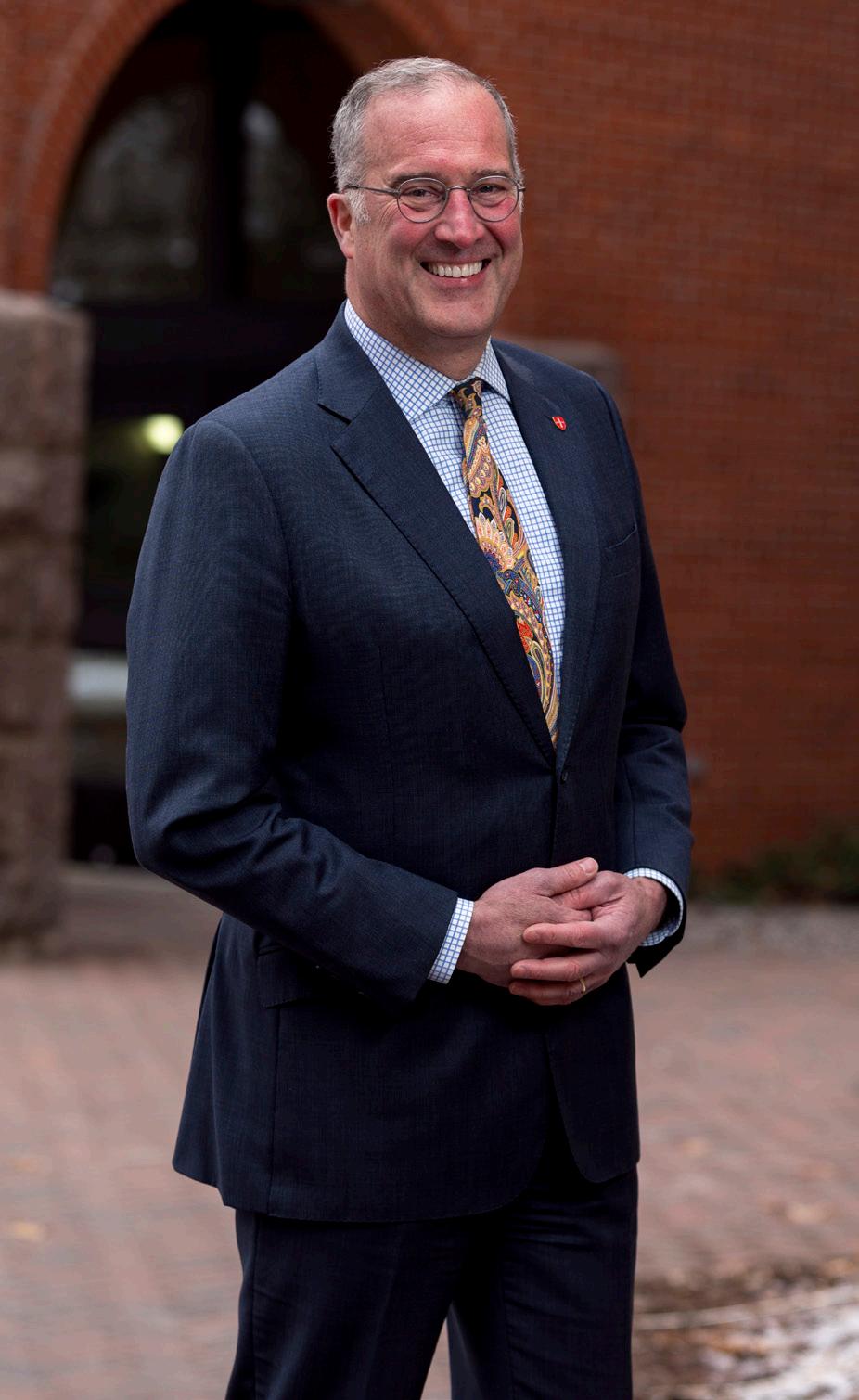
In the context of my inauguration ceremony last fall I made note of the unifying architectural theme of the hexagonal honeycomb shape in both the Sacred Heart Chapel and the Abbey and University Church. Our own Sister Pat Kennedy described those patterns in her dissertation, noting that the windows in Sacred Heart Chapel “facilitate a sense of the divine in communion with the space.” She goes on to describe how “the honeycomb reflects the work of bees [and symbolizes] the interconnectedness of monastic work.”
Brian J. Bruess, Ph.D. President, College of Saint Benedict and Saint John’s University
It serves as a metaphor for the work we do at the college and university as well. A series of hexagons joined together creates much more than the sum of its individual parts. It becomes a system of sheer strength, a structure of awe, beauty and remarkable efficiency.
We use that structure to surround and support each student. It’s no coincidence
that our coordinated online student support platform is referred to as The Hive – a connected community in support of student success. (You’ll read more on that later.)
Saint Ben’s and Saint John’s have always been passionate about student success. Each new Saint Ben’s student entrusts us with her education, and our Benedictine commitment to stewardship demands that

we appreciate and care lovingly for that responsibility.
So throughout the years, our faculty, staff and monastic partners have diligently watched over each student, offered mentorship, and helped out as best they can. In recent years though, understanding of the obstacles that can get in students’ way has evolved. And our commitment to aggregating the services available to students and taking a more holistic approach to those services has led to dramatic improvements.
That commitment is so strong that we’ve made “The Student Experience” one of three strategic directions in our new institutional strategic plan. (You can learn more about this and all of our strategic
planning process and progress using the QR code here.) Over the next several years, our students will see that play out in a series of four major initiatives:
• Strategic academic innovation (academic program and centers)
• Sophisticated, inclusive, comprehensive and compelling residential student experience
• Belonging and community through mental health support
• Equitable access to and participation in high-impact practices
In this issue of Informed, we’re going to take a look at some of the people, tools and programs in place to give Bennies and Johnnies the best chances to succeed.
That starts with our new Dean for Student Academic Success John Andrick. It continues in the coordinated approach of our Network for Academic Success, specifically in ambition-based resources like The Study. It’s brought to life by generous benefactors like Sharon Pugil Ridgeway ’81 and Jim Ridgeway, who saw a need in real life and stepped forward to work toward solutions. We’ll also share some of the many ways you can get involved, wherever you are, and advocate for the success of today’s Bennies and Johnnies!
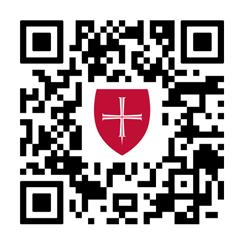
Discover our most recent strategic planning.

As the first dean for academic success at Saint Ben’s and Saint John’s, John Andrick oversees Academic Advising, the libraries and writing centers on both campuses as well as the math center, The Study, Student Accessibility Services, orientation and first-year experience. His position was created to bring forward a more holistic approach to student success.
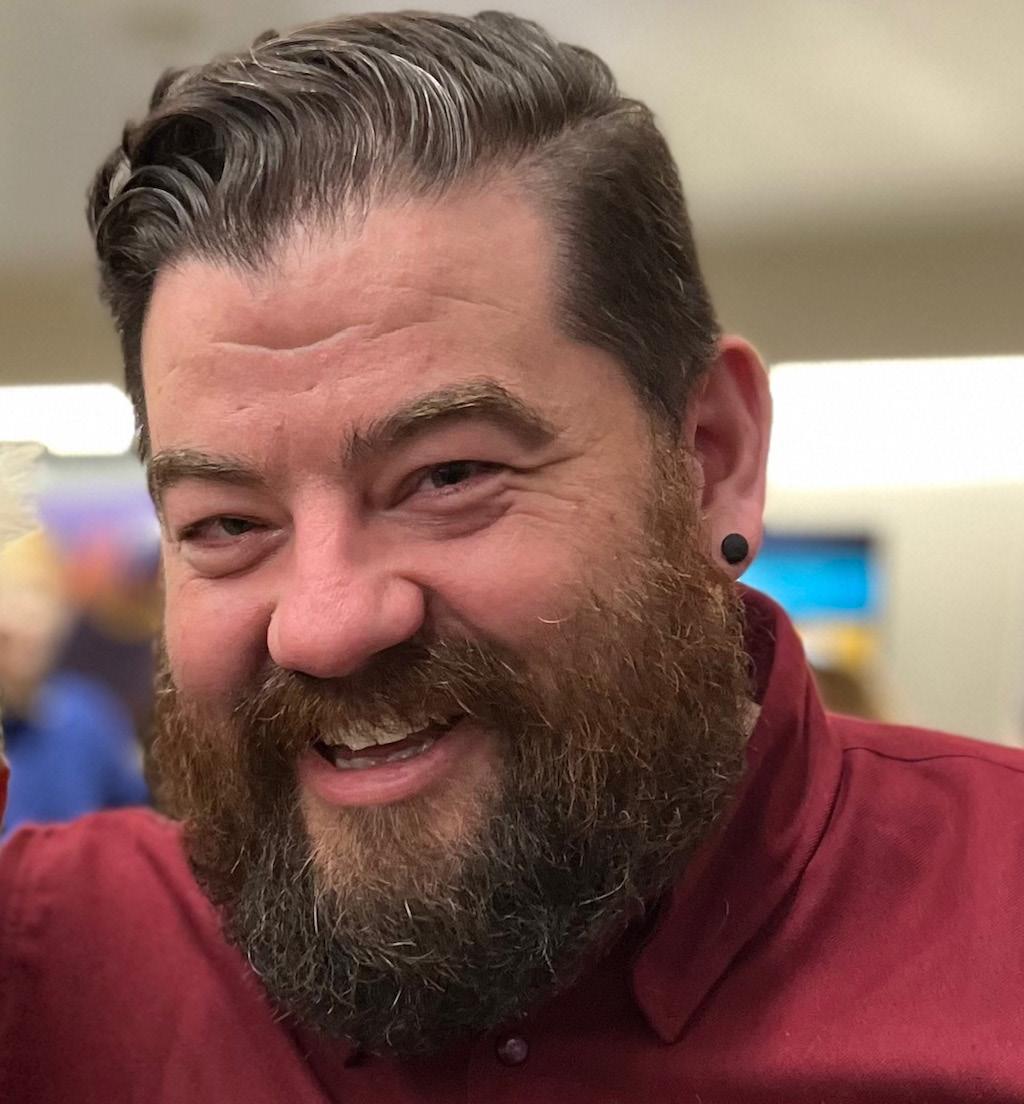
“There had already been some organization of those services to start working together and to be more collaborative and coordinated,” says Andrick, “but there wasn’t a dedicated staff person or dean-level position who was focused just on the areas that are now under my purview. They were often split up and secondary responsibilities for other positions.
“I sit at this crux between what we would call academic affairs and student affairs. I’ve worked in both of those areas in my career and have a track record of pulling together faculty, staff, academic practitioners and student affairs practitioners,” he says.
Andrick cites research indicating a student’s sense of belonging and connectedness in higher education directly correlates to essential outcomes, including academic achievement, well-being, motivation and retention. It’s particularly true for first-generation and students from underrepresented populations.
“We’re working a lot more closely to recognize that students are whole people. Their academic performance is often tied to everything that’s happening outside of the classroom. If they’re not thriving in their residence halls or socially on campus, they’re not going to thrive in the classroom.
It’s apparent that staff members across these services care deeply about the students they work with. They work really hard to build those significant relationships with the students that come to their services.”
If they’re not thriving financially or in their mental health, the same is true,” he says.
In addition, the changing needs of today’s college students require a shift in the way we approach student recruitment and college readiness. Traditionally, the industry as a whole operated from a paradigm of requiring students to be college-ready. Andrick says now colleges need to shift that thinking and ask how they can be studentready. That will require gaining a better understanding of who today’s students are and ensuring the right supports and resources are in place.
“The incoming college student looks different than they used to. They’re prepared differently. There’s a significant gap in social and academic development post-COVID. Even some of the really good students are socially and academically two years behind in terms of their development because they spent two years on Zoom or in virtual classrooms. We need to provide support to help them overcome these challenges,” he says.
Though there’s definitely work to be done, Andrick believes Saint Ben’s and Saint John’s have a strong foundation to build from.
“It’s apparent that staff members across these services care deeply about the students they work with. They work really hard to build those significant relationships with the students that come to their services. These are relational institutions. We’re already strong in these things and we just want to get that much better at them. That excites me about the work here,” he concludes.
If you’re interested in making a philanthropic impact on student success, reach out to Senior Principal Gifts Officer Chad Marolf at 320-363-5402 or cmarolf@csbsju.edu.
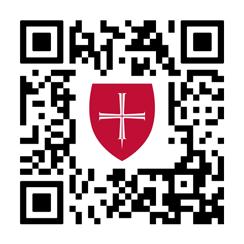
To learn more about John and his journey to CSB and SJU, use this QR code.

When Abby Robinson ’27 was in high school, she found herself in unfamiliar territory. Abby challenged herself with AP courses, but at some point, the weight of her coursework began to take a toll. When the turbulence of the pandemic hit, she slipped even further behind.
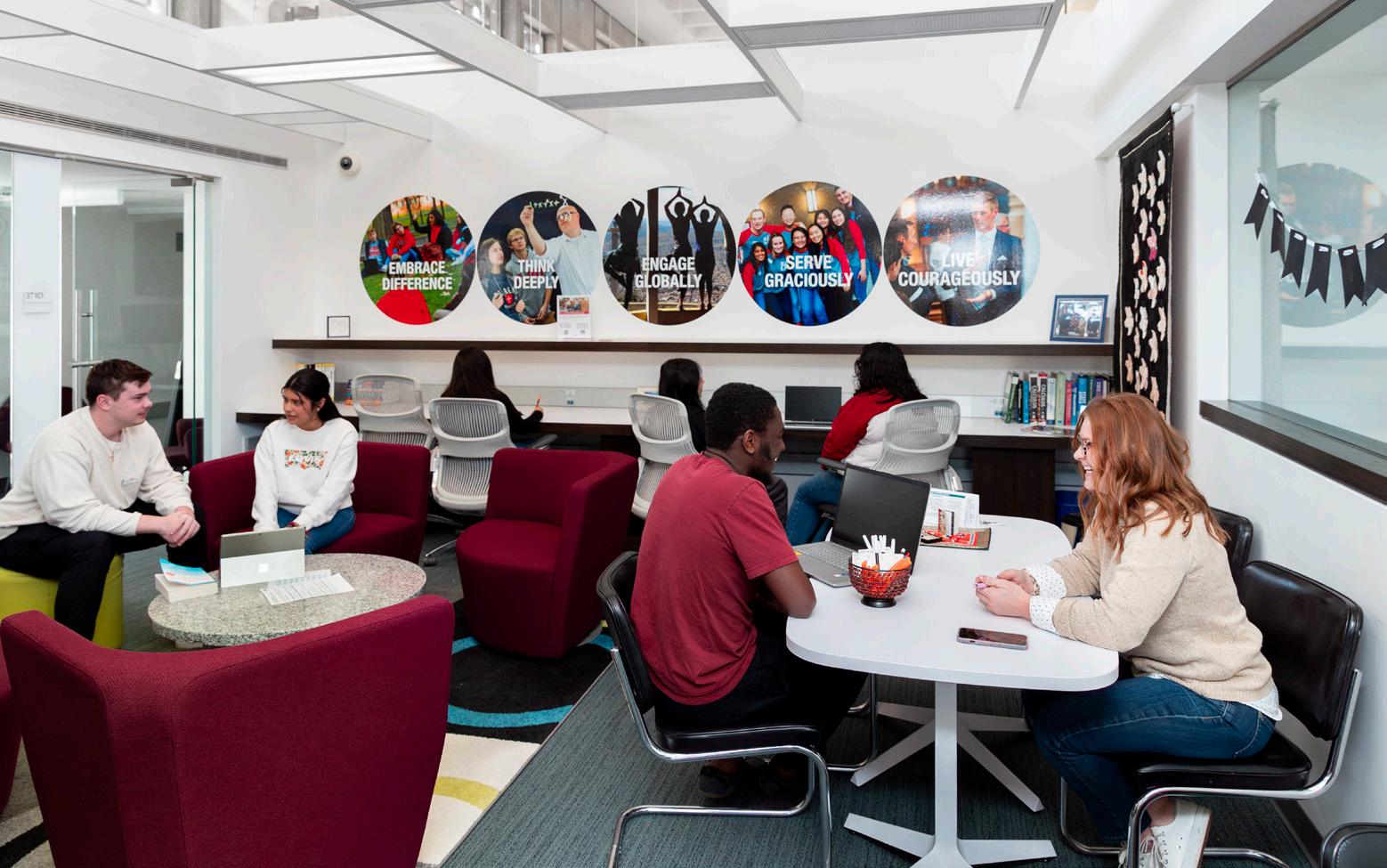
Peer-to-peer mentorship
“It was something I had never experienced before. In my junior year, I realized I needed to find a system that would work for me, because falling behind is not who I am,” she says.
To get back on track, Abby worked with her mom to organize her time by creating a Google calendar. Her stress and anxiety levels dropped dramatically and her classes improved. She shared her organizational system with friends who were also struggling and found she loved the feeling of helping others succeed.
So it’s no surprise that when Abby arrived at Saint Ben’s, she jumped at the chance to become a peer academic coach for The
Study. The Study is an ambition-based resource where students can come and hone skills like goal setting, time management, effective studying, communication and presentation skills.
As a peer academic coach, Abby opens the door for honest communication with other students about their educational goals and challenges and then offers strategies based on their needs.
Fellow peer academic coach Marian Viera ’26 says students often avoid seeking help for their academic struggles because they may feel a sense of shame or judgement.
“It’s something that’s very vulnerable for a lot of people due to their prior experiences or their own relationship with their academics. But once we’re able to connect with the student, it takes some of that away and we’re able get a better understanding of who they are
as individuals, and then guide them to possible solutions,” says Marian.
As an English and secondary education major, Marian believes the skills she’s learning will make her a better educator. “It’s not only social skills that I’m gaining, but professional skills by being able to manage a variety of interactions and circumstances,” she says.
“When someone walks into The Study, they’re usually all tense, their shoulders are up and you can feel the nervous energy. But after you’ve had a good coaching session, that person will walk out relaxed and usually with a smile,” Abby says.

The Study opened at the start of the 2022-23 academic year. It’s currently staffed by a team of 10 peer academic coaches ranging from first-years to seniors. Each undergoes training that meets national organizational standards for peer academic tutors and coaches.
“One of the truly exciting things is that students in a range of experiences are tapping into this resource. We might be working with a new student who is feeling overwhelmed and is trying to get their feet under them, and then next minute we’re working with a more experienced student who is doing very well and wants to create space in their days for additional opportunities,” says The Study’s director Theresa Anderson.
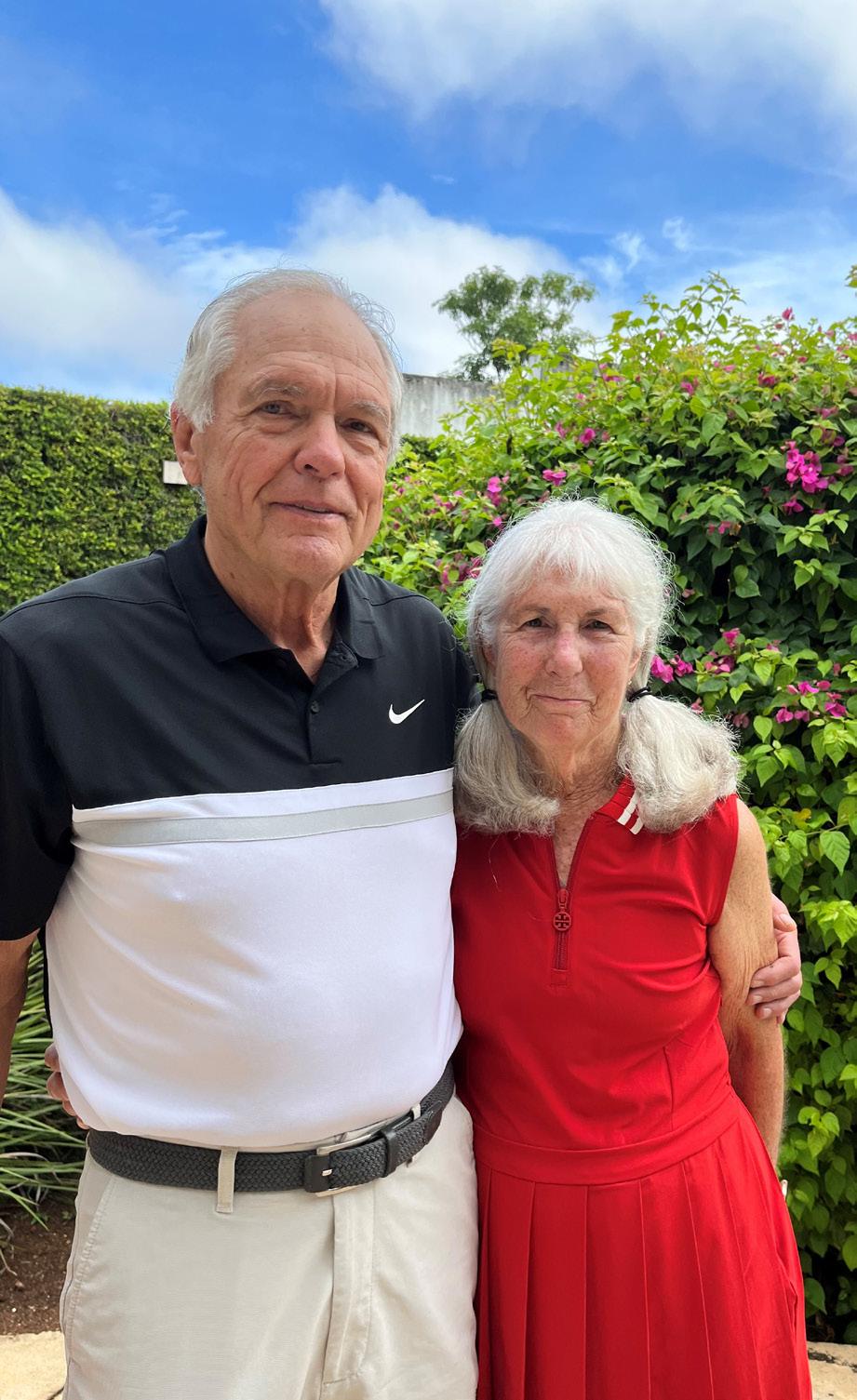
Sharon Pugil Ridgeway ’81 and her husband Jim credit the CSB and SJU community for benefitting three generations of their family. So when opportunities arose to give back, they answered the call more than once.
In 2010, Sharon and Jim committed $500,000 to Saint Ben’s expansion of our nursing facilities. That program had impacted Sharon personally when she attended as a registered nurse and nontraditional student seeking her Bachelor of Science in nursing.
Years later, when CSB and SJU were in the early stages of developing concepts for an academic success center that would bring together a variety of student support services, Sharon and Jim became actively involved and ultimately committed $500,000 to the program through the Ridgeway Family Fund for Academic Success.
Like their gift to the nursing renovation, their support of the academic success center was born out of personal experiences. The Ridgeways were financing the education of a third-generation family member who was having difficulties maintaining their grades.
When the couple reached out to the school for help and answers, the school worked with the student for another year before additional stressors prevented them from maintaining a passing GPA.
“This was the impetus for us to meet with school leadership to learn what was in place to identify students who, for any number of reasons, may be struggling early in their educational journey at Saint Ben’s and Saint
Sharon and Jim are very generous... Having a family like theirs willing to support all these areas is invaluable.”
John Andrick
John’s. It was determined that additional software was needed to monitor and coordinate communication between students, faculty, counseling and administration,” say Sharon and Jim.
The couple funded the software that has become known as The Hive, and were partners in the journey to develop and implement interventions to promote student academic success. Eventually, the process became more than just purchased software. Conceptual maps were developed to show current and future interventions the center could take that would help students survive, thrive and excel.
John Andrick, dean for student academic success, says even in the short few months he’s been at CSB and SJU, it’s obvious that his areas could not do the work they do without the support of the Ridgeway family.
“They helped us get some of the technological infrastructure off the ground that we use to create efficiencies for the work we do.
We have what’s called an early alert system that we use to coordinate and differentiate the care and support we provide to students academically. Sharon and Jim are very generous supporters of our Student Accessibility Services Office and allow us to support students with learning differences, mental health concerns and physical health
concerns in ways that we would not be able to otherwise. Having a family like theirs willing to support all these areas is invaluable,” says John.
Sharon and Jim say partnering with the schools to bring these services forward is some of the most gratifying work they’ve done.
“The people we’re working with at Saint Ben’s and Saint John’s are at the top of their game. There’s a lot of work to attend to but this work gives us hope. Because of this process and the expected outcomes, we’re building future generations,” say Sharon and Jim.
Across both campuses, faculty, staff, monastics and peers are lining up to offer support for students.
But what about alums and friends? Are there any ways you can lend a hand? Glad you asked. The collaborative spirit of volunteerism and the Benedictine power of coming together in community are at the heart of who we are as Bennies!
If you see anything here you’d like to learn more about, feel free to reach out to Valerie Jones ’94, executive director of alumnae relations, at vjones@csbsju.edu or 320-363-5361.
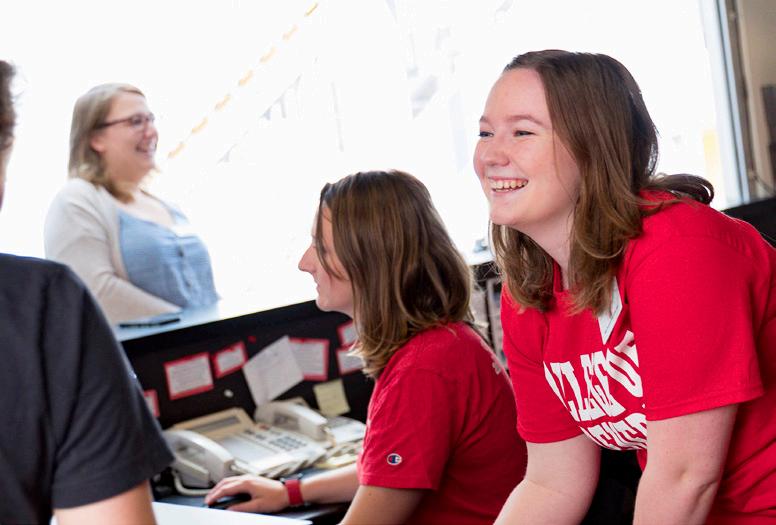
• Move-in day
In August, alums typically help out new first-year Bennies and their families with directions and guidance … and maybe a hand with that duffel bag.
• Etiquette Dinner volunteer
Each spring, you can be a table host and a networking practice partner as Bennies learn to navigate social and professional situations.
• Come back when we invite you! Watch your email and the monthly e-newsletter for occasional events where we can always use a hand.
OFFER YOUR MENTORSHIP
• SEAM
This is a spring externship experience for sophomores to hold two or three informative interviews with professional mentors like you.
• Host an internship
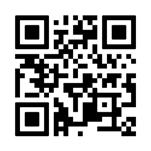
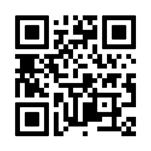
If your company is in position to sponsor an intern and give them that experience and exposure in your professional world, Bennies and Johnnies make great candidates.
• InterAction
Get paired up one-on-one with a student for coffee or lunch and a chance to help them build their networks and improve their professional communication skills.
• Bennies in Business
GIVE WHERE YOU CAN
• Bennie Career Closet (Johnnies have one as well!)


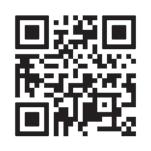
For many students, purchasing new professional clothing is a daunting and stressful expense that can keep them from engaging with opportunities. Your gently used work wear can remove that obstacle!
• Emergency Fund donor
The Emergency Fund is administered in Student Development by the dean of students and provides help for Bennies in a bind. To make a gift to this fund,
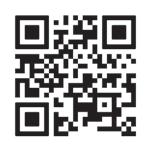
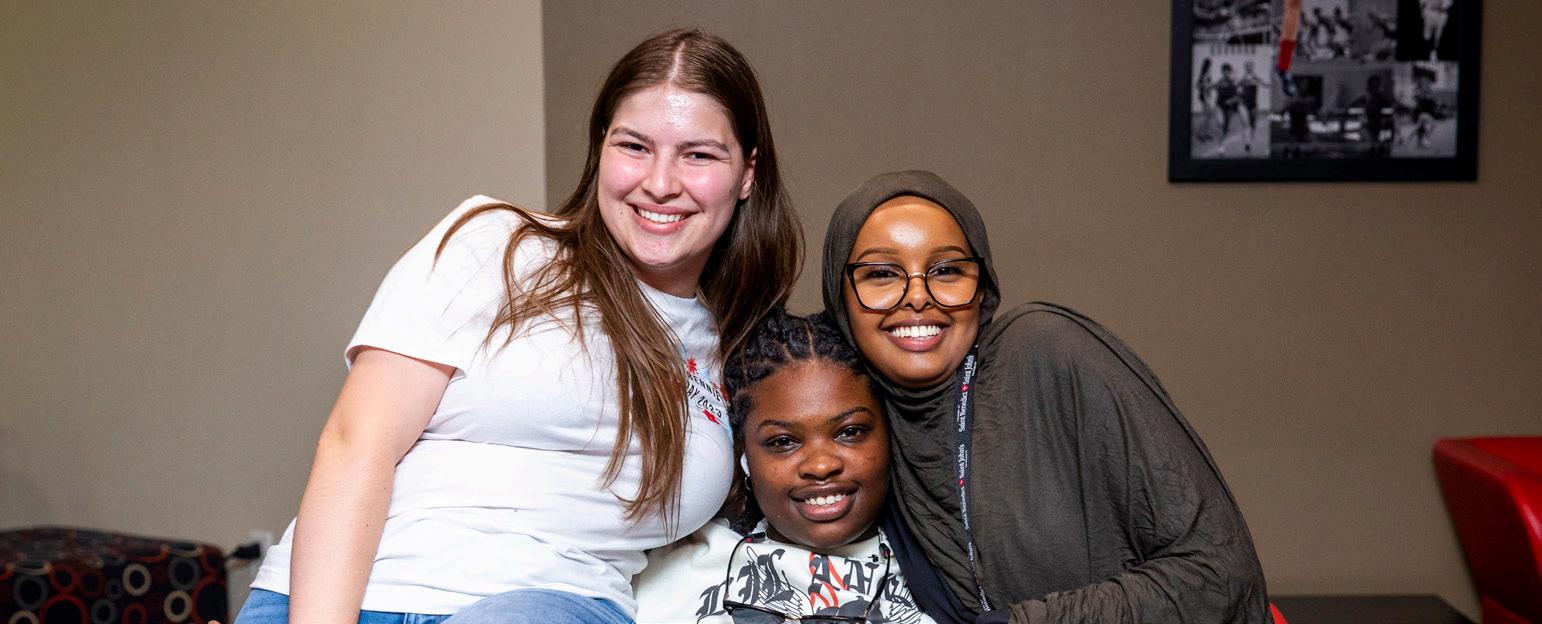
scan the QR code, select ‘other’ and type in “Emergency Fund” in the open field.
• First-Year/New Student Welcome
Every new Bennie – whether first-year or transfer – needs a welcome to our community. Some years that involves a small, logoed gift, other years it’s simply a letter. Either way, it takes volunteer help to pull it off! Watch
for in for each year in August or September.
• First-Year/New Student Care
Package gifts (Bennietines!)
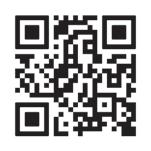
By February of your first year, college can start to feel a little overwhelming. That’s right around the time a Bennie could use some support and encouragement from someone like you who’s made it through!
37 South College Avenue St. Joseph, MN 56374
Please direct questions to 800-648-3468, ext. 3 or mutsch@csbsju.edu